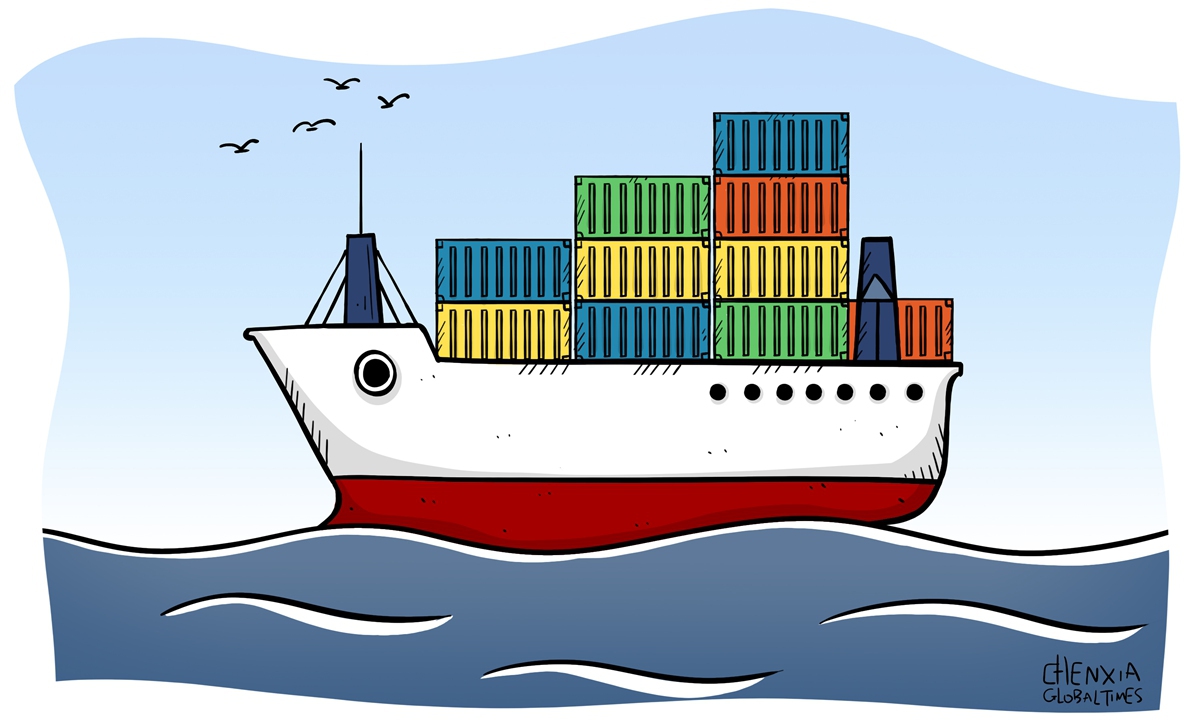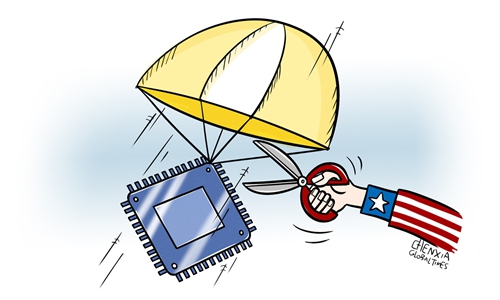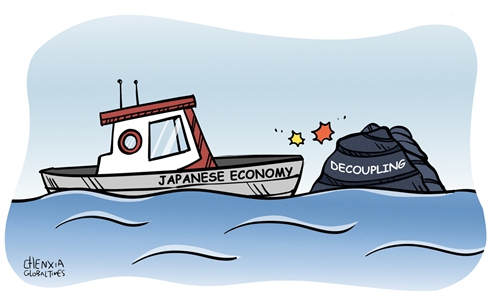
Illustration: Chen Xia/Global Times
As Japan is facing the most important tasks of keeping the COVID-19 epidemic under control and restoring economic vitality, how to expand its exports has become key to boosting the country's economic recovery, highlighting the importance of further improving its economic and trade relations with China.According to the 2022 Blue Book on the Japanese Economy published on Tuesday by the Institute of Japanese Studies of the Chinese Academy of Social Sciences and the Social Science Literature Press, since China is Japan's largest trading partner and important investment partner, strengthening economic and trade cooperation between China and Japan is of special significance to Japan's economic recovery and the high-quality development of the Chinese economy.
The blue book came just days after official data showed that Japan's GDP recorded an unexpected contraction of an annualized 1.2 percent for the first time since the third quarter of last year, underscoring the urgency for the country to find a way out of its current economic predicament.
Despite the recent lifting of COVID-19 curbs, the economic woes facing Japan remain acute, given the vicious structural cycle of a depreciation of the yen, higher import costs of energy products, and expanding trade deficit.
While the Japanese government has unveiled its latest stimulus package aimed at boosting household consumption and economic growth in the next few months, it is important to note that for an economy that is heavily dependent on the external environment, Japan cannot lift its economy out of the current predicament without expanding its exports. And China is an essential trading partner for this expansion.
The year 2022 marks the 50th anniversary of the normalization of diplomatic relations between the two countries. Over the past half century, the two countries have achieved mutual benefits and win-win results on the track of peaceful coexistence. In terms of bilateral trade, China again has become the largest market for Japanese exports since 2020, with exports to China accounting for about 20 percent of the total Japanese exports. In particular, the value of Japanese agriculture, forestry and seafood exports exceeded 1 trillion yen ($8.7 billion) for the first time in 2021, with more than one-third of agricultural and aquatic products going to the Chinese market. China is also the largest market for Japanese exports of semiconductors, raw materials, electronic parts and equipment.
However, it is undeniable that the development of China-Japan economic relations is facing headwinds caused by geopolitical maneuvering. As the US has been touting the idea of "decoupling" from China, the Japanese government has appeared quite cooperative in the US strategy of building technology alliance and supply chain alliance that exclude China.
Under this circumstance, the economic and trade cooperation between China and Japan has reached a critical juncture. Whether Japan will jump onto the US' anti-China chariot or adopt an approach that is more in line with the interests of itself and regional peace will determine its economic future. If Japan blindly follows the US' "decoupling" push at the cost of dividing regional supply chains, it would only bear huge losses by itself.
At present, the Japanese economy is facing increased risks of recession, while its population is aging fast. By comparison, Asia is the fastest growing region in the world, with China, ASEAN and India all seeing steady recovery and growth. Moreover, as the Regional Comprehensive Economic Partnership entered force at the beginning of this year, the supply-chain cooperation in East Asia is expected to further deepen, which offers a rare opportunity for Japan to alleviate its economic difficulties and improve its own economic structure.
In this sense, Japanese political elites need to recognize that it is the side that is more in need of closer economic and trade cooperation with China, and standing in the way of bilateral cooperation is at the expense of Japan's economic future.



